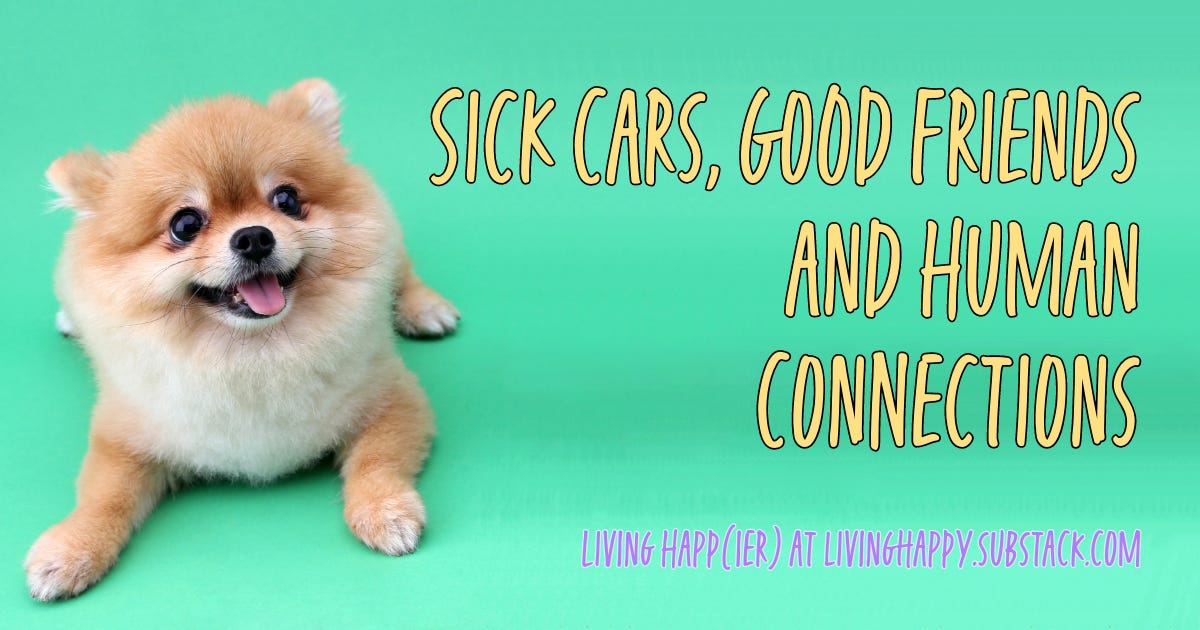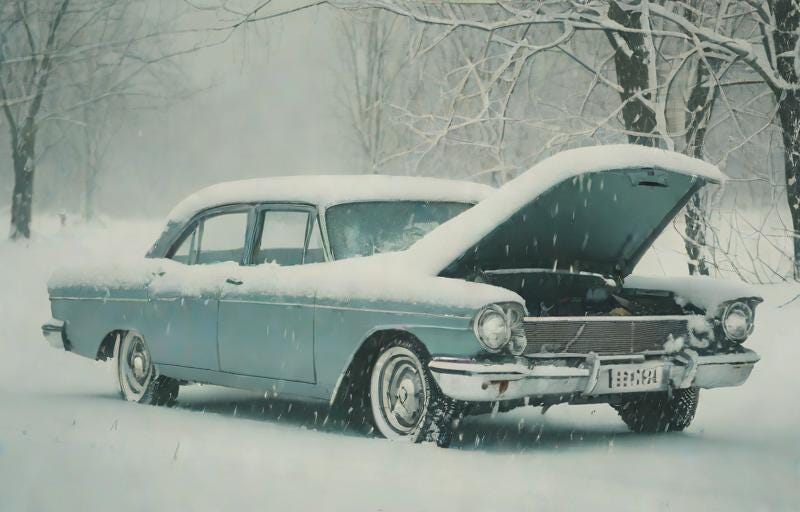One time when my car broke, Em had been sick. She was sitting on the couch. So was I. I had writers' block. I figured she could give me a super good brilliant idea about what to write about.
"C'mon, Em," I begged her. "Help your pitiful mother."
She looked me dead-on in the eyes. She must have a brilliant idea! I thought. She will save me from the evil writers’ block that has clenched my brain and squeezed it in its evil fist until it’s the size of a peanut.
Thank God for Emily!
“Well?” I asked her. “Well?”
“I don’t know.” She shrugged and paused. “Cherry Lime-Aid looks so gross doesn’t it?”
It does. Em and I had a pretty gross day. It was a Monday, overcast, and full of mosquitoes, but we were willing to make the best of it. We were determined to have good attitudes. So, we bounced out of the house and into my Subaru ready to start Monday, which officially began back then, when Em stepped into school.
Seatbelts fastened, pink backpack on board, I turned the key. Nothing happened. I made sure it was in that park gear thing that cars have to be in order to start. It was. I jiggled the gear shifty do-hicky. Sometimes my car has to be touched just so in order to work.
“Come on. little baby,” I whispered to her and turned the key again.
Nothing. No moans. No turning over noise. No sputter. It was like getting the cold shoulder in bed. You’d fought with your spouse over something and now you expected him or her to grumble at you, maybe roll their eyes a bit. Instead, it was like you had snuggled beneath the covers with a cadaver.
Cadaver is just the right word.
“The car is dead,” I told Emily, staring at the steering wheel in shock.
“What’s wrong with it?”
It was sweet that she thought I would know back then. When she was 16 she’d just think I was stupid and I’d broken the car on purpose in an attempt to “ruin her life.” I know how this works because centuries ago I was 16. That was when I didn't look like the “before” picture in a magazine make-over ad. It was obviously a long time ago.
“I think the battery is dead. It ran out of battery juice stuff,” I said like my dad wasn’t a truck driver and mechanic. Spoiler: he was.
She nodded knowingly while I called my significant other for a ride to school. We made it with 30 seconds to spare. No tardy slip for my daughter, not that day!
The kindly significant other returned me to my car and tried to jump start it while he was dressed in his suit and tie, despite the fact that he had run out of coffee a half hour earlier. He usually didn’t perform well when he was out of coffee. The husband. Not the car. He attached all the jumper cables and did not electrify himself, but nothing happened with the car.
“We could give it coffee?” I suggested.
“I’ll try again tonight,” he said sternly, glaring at the car like it was Enemy Number 1 on the FBI’s Bad Car At Large List. He wagged his finger at the gas tank cover. “If we can’t fix it – we’ll have to call the wrecker.”
Gasp!
But, alas, even the tow truck threat did nothing to turn my car over. So, he left for work and I continued my day, stuck at home when at 12:30 p.m. the school called.
“Mommy, I don’t feel well,” Em’s little voice said on the phone. “Can you come get me?”
Of course, I could. I’d just dash into the car and—
Oh, oh …
I slumped to the kitchen floor. My worst mommy nightmare had come true. Emily needed me and I wasn’t right there. Thinking quickly I called the ex-husband and learned that he was unreachable at a lunch meeting. Great Halls of Justice, Super Mom! What would I do?
I did the next best thing. I called a friend. My best friend. Don Radovich. He came right away, driving past my road of course, but hey, he did turn around when he saw me jumping up and down, screaming and waving a large HELP ME flag in the air. We picked up my little girl and brought the feverish, stuffy head, fever, but she can still talk, little girl home.
Don saved my day. I tried to sing him that old “That’s What Friends are For” song that was popular in the 1980s. Stevie Wonder and Dionne Warwick sang it on Solid Gold and held hands. Unfortunately, I couldn’t remember all the words. Holding his ears, he said that was okay and sped the car up a little bit.
“So what are you writing about?” Em just asked me when she heard my fingers tapping on the keyboard of my laptop.
“That time the car broke down and you got sick at school and Don had to come and get me so I could pick you up,” I sighed.
“Oh, that’s bad. I’m sorry,” she said. “I miss Don.”
“We all miss Don,” I told her. “Well, I’m also kind of writing about friends and how important they are. Sort of.”
She smiled and leaned her head on my shoulder.“Oh, that’s much better.”
"Yeah," I said. "It is."
Then she turned those brilliant eyes on me and said, "We need to get better cars."
She is way too smart, that kid. But it’s more than that, I think. A car is technology and machinery and ingenuity and a very cool invention, right? Just like smart phones and televisions and medicine and indoor plumbing and even AI. But that’s all it is. It’s not something that connects with you, mourns with you, laughs with you in a way that’s real, that involves truth and resonance and honesty, in a way that’s not programmed.
That matters. Friends matter. My story about my car being broken isn’t really about the car. It’s about people coming through for each other. That’s more amazing than any invention there is.
The World Council writes,
”A 2020 report led by a U.S. health insurer found that 61% of those surveyed experienced loneliness. Since 2018, there has been a nearly 13% rise in loneliness, when the survey was first conducted. Reasons given for feeling lonely included “not enough social support, too few meaningful social interactions, poor physical and mental health and not enough balance in our lives”. It should be noted that feeling lonely does not necessarily correlate with being alone.
“Feeling lonely can be described as “perceived isolation”, as people can feel lonely even when they are not objectively in isolation. The prolonged pain of loneliness can be “as harmful to your health as smoking or obesity”, as it generates a fear response that can have a detrimental impact on immune response, the ability to regulate emotions, and on cognitive and social skills.
“Furthermore, the sense of being lonely can produce a negative feedback loop, as people who feel lonely tend to act more cautiously, even with people who they had been sharing a connection with. In contrast, feeling socially connected to the people in one’s life is associated with decreased risk for all-cause mortality as well as a range of disease morbidities.”
Don died. My other adult best friend Grady died, too. And that’s a strange place to be at in a lot of ways because it requires building up human connections, hoping that you’ll have that instantaneous emotional supportive connection with other people that you can call when your car breaks down.
There are ways to build that up. Maggie Wooll on The Better Up has a great blog about it, which you can check out here.





